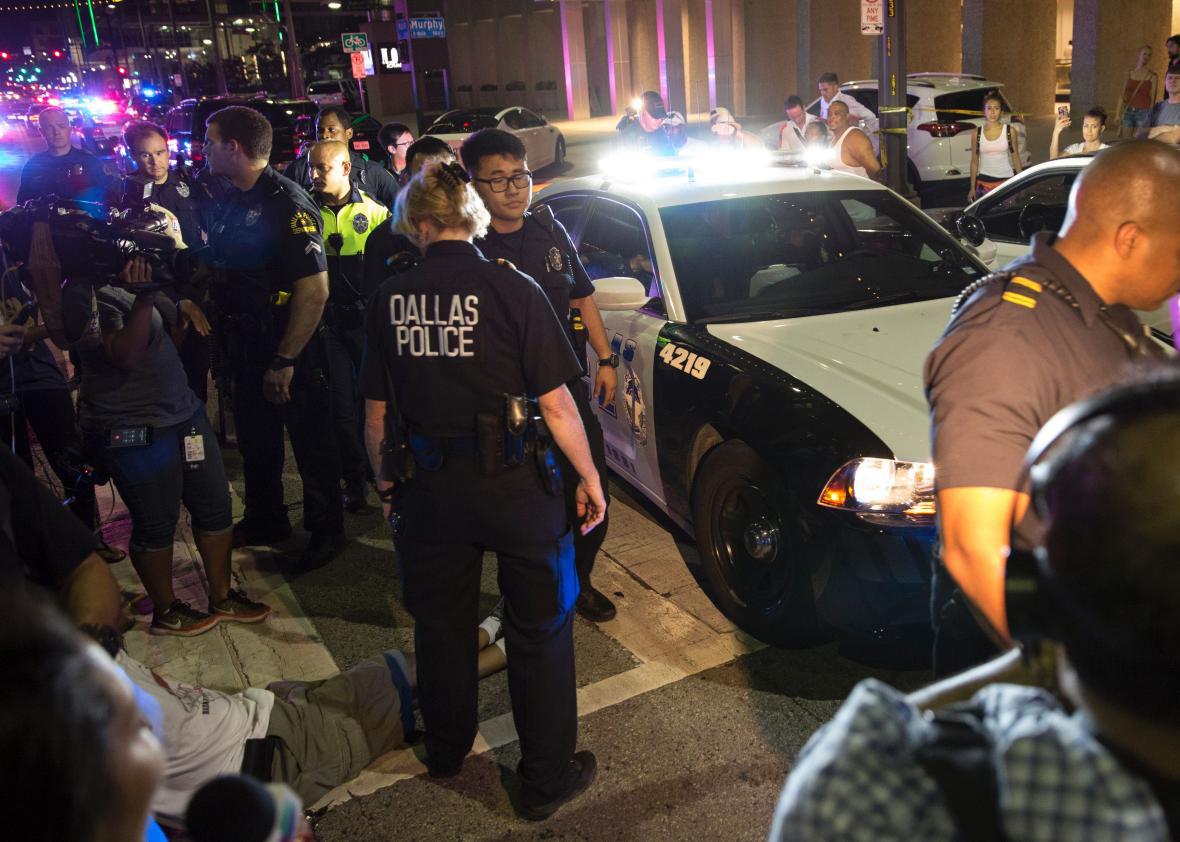There may be no better evidence of the moral bankruptcy of a certain chunk of Wall Street than the performance of gunmakers’ stocks in the wake of well-reported shootings.
Sure, before trading began on Friday morning the New York Stock Exchange held a moment of silence for the police officers killed in Dallas on Thursday night. But at that very moment, shares of gun manufacturers were surging.
Thanks to after-hours trading, something once the province of professional investors, but now open to almost anyone with an interest, share prices of Smith & Wesson increased by 5 percent between the close of the markets Thursday and the opening bell Friday morning, opening for trading at $29.75 after closing at $28.29 on Thursday. As of this afternoon, Smith & Wesson’s share prices had fallen back slightly, to $29.21.
Meanwhile, firearms manufacturer Sturm, Ruger & Co., closed Thursday at $64.52; it opened at $66.71 and Friday afternoon was trading at $67.87, a more than 5 percent leap over its price at the close.
This is an all-too-familiar pattern. On the first day of trading after the Orlando massacre, in which 49 were murdered by a shooter who opened fire in a crowded gay nightclub, shares in Sturm, Ruger went up by 8.5 percent by the end of the day while Smith & Wesson’s increased by just under 7 percent. Both gunmakers’ stock prices went up when news of last year’s San Bernardino shooting broke, too.
What are investors doing? Well, sales of actual guns surge in the wake of publicized shootings. No surprise there: As the nation mourns, many right-wing websites do their best to rile readers up about gun control. Take Thursday’s Dallas shooting. “President Gun-Grabber-in-Chief couldn’t wait to find the nearest microphone so he could politicize the deaths of police officers for the sake of gun control!!” writes the Political Insider. Another site, Weasel Zippers, proclaimed, “CNN Already Blaming Dallas Cop Massacre on Lack of Gun Control.” A sales bump will surely follow this time, too. Last year, after the San Bernardino attack, California tracked 1,000 additional requests a day over the same period in 2014 to approve the purchases of guns, according to Pasadena-based public radio station KPCC.
Investors smell money. A week after the Orlando shooting, the Street ran a piece headlined, “Why Gun Stocks Offer Excellent Short-Term Trading Opportunities.” “The fact remains that terrible events such as mass shootings are good for gun stocks,” wrote Matt Thalman, adding that they are “good bets for active traders.”
This isn’t a fluke. Earlier this year, famed investor Louis Navellier—the founder of Navillier Associates, which offers up everything from investment newsletters to mutual funds—went on CNBC to discuss his investments in gun manufacturers. “Mr. Obama is the best gun salesman on the planet,” he explained, before going on to helpfully explain that his firm’s fund investors “just want us to make money.”
There is a small silver lining here. You can think of at least some of the people who rush to buy gun stocks immediately after these ghastly events not just as morally challenged but as what professionals call “dumb money.” After-hours trading is a highly illiquid market, and the little guy barely stands a chance to do better than the high-frequency trading programs and institutional investors that are widely thought to dominate it. Even Jim Cramer claims, “Don’t trade right after you see the headlines.”
After all, Sturm, Ruger might well have closed up on June 13 in the immediate aftermath of the Orlando shooting, but on June 14, it went back down, dropping by 4 percent. That likely cost some short-term traders a chunk of change.
On the other hand, long-term holders of gun stocks are making out. In 2015, shares of Smith & Wesson rose 132 percent. Sturm, Ruger? A 75 percent gain.
Given that most Republicans in Washington refuse to even consider voting for the most minor of gun-control measures, it seems likely that gun stocks will continue to be a good bet for investors. How depressing.
